Dr. Masoumeh Jorjani
Academic Appointments: Professor, Pharmacology, Neuroscience
Administrative Appointment: Dean, Medical School; Director, Neurobiology Research Center,
msjorjani@sbmu.ac.ir , Dean.md@sbmu.ac.ir
Address:Chamran Exp. Way, Velenjak, Shahid Beheshti. Univ. Med. Sci, School of Medicine, Neurobiology Research Center
Phone: 98-21-22439950
Fax: 98-21-22439942
Lab: 98-21-22429765 (Ext. 120)
Personal History:
I graduated from School of Pharmacy at the Tehran University of Medical Sciences in April 1988 with Pharm D. I was then employed 2 years as a lecturer in Department of Pharmacology, School of Medicine at the Shahid Beheshti University of Medical Sciences in Tehran where I received my PhD in November 1995. I worked there as an Assistant Professor and was promoted to Associate Professor in December 1999. From 1999- 2005, I was vice –chancellor for research at the Shahid Beheshti University of Medical Sciences. I received my professorship in April 2004. From Dec. 2007 – Jul. 2008, I received an appointment as Visiting Prof. in the Department of Physiology, Baltimore School of Medicine at the University of Maryland, USA.
Since November 2007, I am General Secretariat for Iranian society of Physiology and Pharmacology and Editor in-chief for “Pejouhandeh” research journal for ten years. I am also a member of the International Association for the study of pain, International Brain Research Organization, Society for Iranian Pharmacist and Iranian Society of Neuroscience. I am currently Dean of Medical School and Director of Neurobiology Research Center at Shahid Beheshti Univ. Med. Sci, Tehran, IRAN.
Research Interests:
We are interested on sex differences in pain perception and pain signaling pathways in the CNS. We investigated the influence of steroid hormones on the pain mechanisms and neurotransmitter release in different brain regions. In recent years, we have focused on mechanisms underlying central neuropathic pain induced by spinal cord injuries and pain modulation by steroids. We found that Estradiol as a multi-active agent protects the neurons and prevents the progress of neurodegeneration. We think that local steroid production is an endogenous mechanism for repair of neural tissue and improvement of somatosensory functions including central pain during CNS damage.
Lab Techniques:
We use a broad range of techniques, from behavioral analysis to the molecular level. Behavioral tests include tests of acute and chronic pain models and motor activity. We also measure the gene expression and detect the interested proteins in the spinal or brain tissues by RT PCR, Immunocytochemistry, Western blot, ELIZA and other molecular techniques. We also study the neurotransmitter release in different regions of CNS by using brain and spinal microdialysis in anesthetized or freely moving rodents. We use HPLC to detect the concentration of molecules of interest in dialysate and other biological samples.
Laboratory Personnel:
- Abbas Alimoradian, Post Doc
- Reza Ahadi, PhD student
- Asiyeh Naderi, Research associate
- Ehsanollah Sadeghi, PhD student
- Kalantari, Graduate Medical Student
- Karkhaneh, Graduate Medical Student
- Fatemeh Abbaszadeh - Research Assistant
Publications: Search all of my publication in PubMed Click Here

